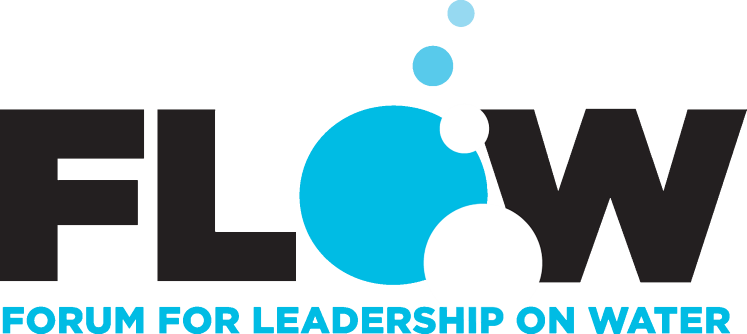U.S. Demands Action Transboundary water pollution
Thomas Axworthy| August, 2022
Originally posted in The Hill Times on August 2022
The United States is Canada’s No. 1 foreign policy priority. But now we have a self-induced conflict over water because Canada refuses to use a bi-national international institution that is the envy of the world, writes Thomas Axworthy.
On June 7, 2022, senior officials from the U.S. State Department, the U.S. Environmental Protection Agency, and the U.S. Geological Survey met with Indigenous leaders in Idaho to discuss how best to address pollution from mining in British Columbia that affects waters in the United States and Canada.
The statement released by the State Department about the meeting used language familiar to anyone who reads similar releases emanating from Ottawa, such as “the meeting underscored the Biden-Harris administration’s commitment to strengthening nation-to-nation relationships by listening to tribal priorities and respecting tribal sovereignty,” or lauding the Biden administration’s commitment to “protect public health, conserve our lands, waters and biodiversity and deliver environmental justice.” If the Trudeau and Biden governments want to economize, they could simply use the same speechwriters.
But the key point of the meeting was to announce publicly the support of the Biden administration for a joint reference by the United States and Canada to the International Joint Commission (IJC) for the Kootenai Basin (Elk River Valley) to assess the pollution damage done to waters and aquatic life by selenium from coal mining waste of Teck Resources Corporation, leeching into Canadian and U.S. waters. The use of the quasi-judicial IJC had long been requested by Indigenous nations from both countries for the reasons outlined in the State Department statement: “A Joint Reference,” said the State Department release “would respond to the need for impartial recommendations and transparent communications, build trust and forge a
common understanding of this issue among local, indigenous, state, provincial and federal governments.”
The need of the Biden administration to go public in calling for the IJC to be used in the Kootenai Basin transboundary issue occurred because— shockingly—Global Affairs Canada had already turned down a request by the Ktunaxa Nation Council. In April 2022, a spokesperson for Global Affairs sent an email to the council informing its members that the government had “decided that (IJC) involvement was not the best route at this time.” This produced a firestorm: the Ktunaxa Nation replied in a May letter to Foreign Affairs Minister Mélanie Joly and Environment Minister Steven Guilbeault: “Ministers, we do not accept this outcome. This decision has trampled our rights and disrespected our nation.”The Ktunaxa Nation replied in a May letter to Foreign Affairs Minister Mélanie Joly, pictured left, andEnvironment Minister Steven Guilbeault: ‘Ministers, we do not accept this outcome. This decision hastrampled our rights and disrespected our nation.’
Next, the International Joint Commission itself entered the fray: the commission sent a letter to Prime Minister Justin Trudeau and U.S. President Joe Biden reminding them that coal mining is covered by Article IV of the Boundary Waters Treaty and that “waters flowing across the boundary shall not be polluted on either side to the injury or health of the other,” and raised the point that the United States could make a unilateral reference to the commission. Global Affairs then backed off and now says all options are on the table, but has yet to agree to the vigorous demands on both sides of the border for the International Joint Commission’s involvement.
Canada’s reluctance in using the IJC is surprising. There is no question that Teck’s coal mines have polluted the surrounding waters: in 2021 the company was fined $60-million for violations of the Fisheries Act and, as outlined in several investigative reports in The Narwhal, as far back as 2016, the auditor general of British Columbia condemned provincial enforcement of mining rules as” inadequate” since Elk Valley mining discharge permits set selenium levels that far exceeded British Columbia’s water quality guidelines.
Using the IJC especially makes sense because it provides international political cover for British Columbia and the federal government to make tough decisions that may be unpopular locally (Teck Resources is a major employer in the region). For Canadian purposes, the IJC is a model international institution. Each country appoints three commissioners, but they are to act independently of national interests using scientific evidence instead in make their judgements. Often at global water conferences, I have been asked to describe the IJC as a mechanism to adjudicate water disputes and there is wonderment that the United States ever agreed to such an impartial body. For Canada to be called out by the United States for not using the IJC simply boggles the mind.
The United States is Canada’s No. 1 foreign policy priority. But now we have a self- induced conflict over water because Canada refuses to use a bi-national international institution that is the envy of the world. The IJC represents everything the Trudeau government favours in foreign policy: institutional cooperation, environmental sustainability, evidence-based decision-making, and reconciliation with Indigenous nations. The Elk Valley dispute is important for residents of the area, but it also has far larger import, namely can the Trudeau government ever be trusted in international relations to take action to back up its platitudes?
Thomas S. Axworthy is the public policy chair at Massey College in Toronto.

